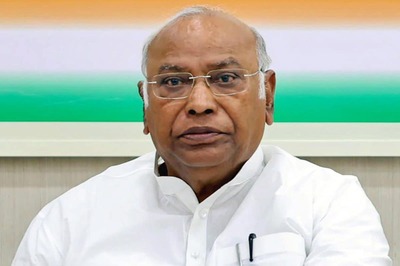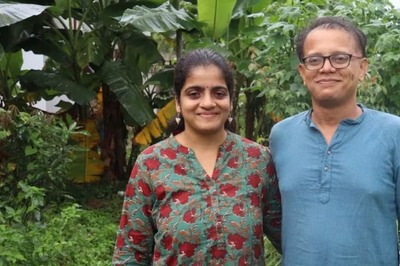
views
Mumbai: As a member of Parliament in the world's largest democracy, it is my responsibility to voice my concern against major public health problems such as tuberculosis. TB is one of the biggest public health challenges facing India today. India bears the highest burden of TB in the world, with 2.3 million new cases and 300,000 deaths every year. The economic loss of this burden to the country is immense, amounting to around Rs 1.3 lakh crores per annum, as an estimated 17 crore workdays are lost to TB annually. It is also associated with a deep-seated stigma that often leads to discrimination within the workplace and the community.
Although TB can affect anybody across socio-economic strata, it tends to disproportionately affect the poor. Lack of awareness, food insecurity, financial inability to access healthcare and difficult living conditions make the poor more vulnerable to contracting TB. Lack of access to appropriate healthcare may lead to gaps in timely diagnosis and treatment, thus perpetuating TB transmission along with the emergence of drug-resistant strains of TB. Patients with drug resistant TB become non-responsive to basic TB drugs, making it physically and emotionally challenging, as well as expensive to treat their condition.
India has been battling TB for decades. The Revised National Tuberculosis Control Programme (RNTCP) under the Ministry of Health and Family Welfare is the primary body coordinating TB prevention, control and treatment in India. The RNTCP has played a pivotal role in increasing access to free TB diagnostics and treatment to patients across the country.
In spite of the RNTCP's tremendous growth, there are still many parts of the country where the services offered by the programme are yet to reach the common people. TB continues to affect people in India at an alarming rate. The tribal areas of Odisha, such as my constituency, Bolangir, still lack basic infrastructure, as a result of which people do not have easy access to the best TB diagnostic and treatment facilities. Moreover, even though the government provides free TB diagnosis and treatment in other areas, the majority of Indian patients go to the private sector where malpractices in diagnosis and treatment are commonplace. However, the quality of care in the private sector is highly variable leading to rising morbidity, mortality, development of drug-resistance, and excessive economic costs apart from severely affecting India's ability to control TB. It is essential to address these gaps in order to succeed with TB control.
Awareness is a critical tool that is needed to address several challenges that presently serve as obstacles to TB eradication such as poor public knowledge about TB symptoms, misconceptions about treatment, low risk perception, and stigmatization of TB patients. Low risk perception is particularly worrisome because people with TB often dismiss their symptoms as a mere cough even if it persists for more than 2 weeks. Meanwhile, their condition worsens and when they eventually access TB care, it is too late. This is why I joined the Advisory Committee of the National Forum on TB, which was launched in 2013, to raise awareness about the need for improved TB prevention and control.
Large cities present a distinct challenge for TB control despite access to better health care. As a spokesperson for TB control, I am very happy to see that the Municipal Corporation for Greater Mumbai launched a comprehensive strategy termed as the "Mumbai Mission for TB Control" in March 2013, which aims to provide universal access for all to TB care in Mumbai.
TB has acquired a more prominent place in public debate in recent months. The disease is now increasingly being seen as a public health priority, both by policymakers and by celebrity advocates who are using their mass appeal to convey a very important message to the community. The Mumbai Mission for TB Control's awareness campaign, featuring Mr Amitabh Bachchan is proof of the concerted efforts being made in all quarters to combat this deadly disease.
I had the good fortune of being able to attend the Union Lung Health Conference 2014 in Barcelona. It was at this conference that I realized India has the highest TB incidence in the world and therefore successfully tackling TB in India would set an example that may be emulated by other affected countries worldwide. Similarly, the Mumbai Mission for TB Control will set an example for other Indian states to effectively combat TB. There are various lessons to be learnt from the Mission. These include scaling up of diagnostic and treatment centers, and aligning efforts with implementing partners.
In the wake of the historic "TB Harega Desh Jeetega" campaign by the MCGM, I commend Mumbai for its grit and am certain that the rest of the country will be inspired to follow suit, and join hands to conquer TB.
(Kalikesh Narayan Singh Deo is a Member of Parliament from Odisha)




















Comments
0 comment